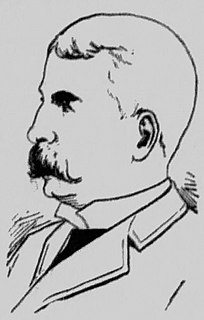A Quote by Isaac Asimov
What is really amazing, and frustrating, is mankind's habit of refusing to see the obvious and inevitable until it is there, and then muttering about unforeseen catastrophes.
Related Quotes
Turned the wrong way around, the relentless unforeseen was what we schoolchildren studied in "History", harmless history, where everything unexpected in its own time is chronicled on the page as inevitable. The terror of the unforeseen is what the science of history hides, turning a disaster into an epic.
We worry about the seemingly ever-increasing number of natural catastrophes. Yet this is mainly a consequence of CNN - we see many more, but the number is roughly constant, and we manage to deal much better with them over time. Globally, the death rate from catastrophes has dropped about fifty-fold over the past century.
I think there's something really freeing about improv, that it's a collective, creative, in-the-moment piece. That's really exciting and really frustrating, because it's there and gone. There's an amazing interaction with the audience that happens because they are very much another scene partner. How they respond determines the kinds of stories we tell.
Until you have learned to be tolerant with those who do not always agree with you; until you have cultivated the habit of saying some kind word of those whom you do not admire; until you have formed the habit of looking for the good instead of the bad there is in others, you will be neither successful nor happy.
The 8th Habit, then, is not about adding one more habit to the 7 - one that somehow got forgotten. It's about seeing and harnessing the power of a third dimension to the 7 Habits that meets the central challenge of the new Knowledge Worker Age. The 8th Habit is to Find Your Voice and Inspire Others to Find Theirs.


































